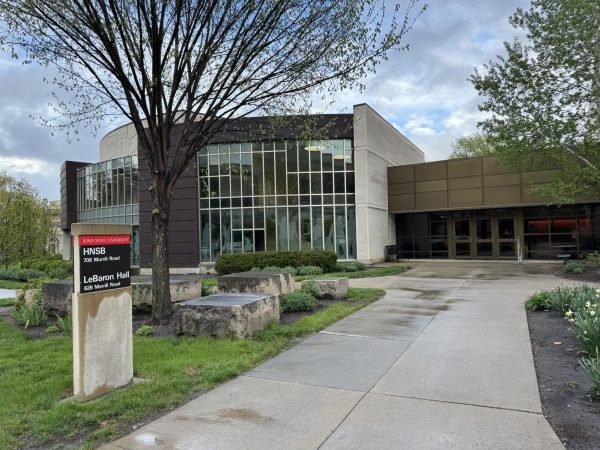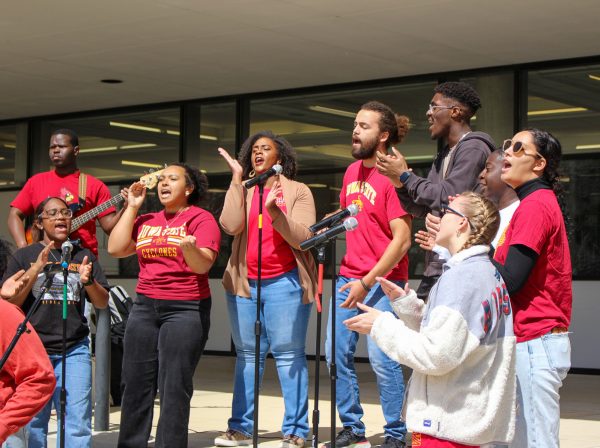Crime survivors share their stories, tips in panel
April 22, 2003
A female ISU student went out to a local bar to celebrate the retirement of a coworker with friends in more than two years ago.
By the end of the night she realized she had drank a little too much and switched to drinking water.
One of her best friends agreed to walk her home to her sorority, but when they left the bar he insisted they take his car. During the drive home she passed out in the car. Her friend took her to his apartment instead. She didn’t think anything of it, she had stayed there before. But, this wasn’t like any other visit. That night her best friend sexually assaulted her, despite her attempts to stop him. In the morning, — he assaulted her again.
This was one story told during a crime survivor panel Monday where Ames residents discussed their personal experiences with crime and the effects it has had on their lives.
“I thought it was really eye opening knowing that it occurs so close to home and that it doesn’t just happen to one stereotypical person. It happens in the military, it happens at home, and it happens on this campus,” said Kelsey Paulson, sophomore in psychology, after hearing the panel members speak.
The panel included the ISU female student; Gregory Helle, an ISU employee who discussed his experiences in the Vietnam war and being sexually assaulted by a fellow soldier; Jeremy Hayes, who discussed the recent vandalism incidents targeting the lesbian, gay, bisexual and transgender individuals, and Julie Wooden who discussed her work with survivors of domestic violence.
After keeping the secret for 30 years, Helle talked candidly with an audience of approximately 20 about his experiences in the Vietnam war and being sexually assaulted. Helle told the audience of the shame he felt after the incident.
“Unfortunately, I found out I spent about 20 months trying to commit suicide because I figured it would be better to come home dead than to come home with that secret,” Helle said.
He shared how the war and sexual assault affected many aspects of his life, describing on going problems with alcohol, a run in with the law and trips to mental hospitals for treatment.
After several therapy programs, Helle was able to speak out about his experiences and write a book entitled, “A Walk in Hell”.
Hayes, coordinator for the Office of Lesbian, Gay, Bisexual and Transgender Student Services, did not tell a personal story, but talked about the affects he has noticed on LGBT individuals after several vandalism incidents on campus this academic year.
Hayes read statements from LGBT students, and said students, faculty and staff are concerned with their safety, and about what ideas are behind the vandalism. Some are concerned about whether this will escalate to physical violence, he said.
Wooden talked about her experiences working as the assistant director for ACCESS Assault Care Center. She said victims of crime can come in any shape, size, sex, and ethnicity. She also said everyone responds differently to crime.
“There is no story that is the same. There is no response that is the same,” Wooden said.
Each panel member also offered tips about how to support family or friends who experience crime. Wooden said it was important to ask the victim of the crime what they wanted to be their next step.
She said often times victims of crime feel they have lost control.
“What you want to do is give the control back,” Wooden said.
Other panel members suggested being supportive and nonjudgmental.
















